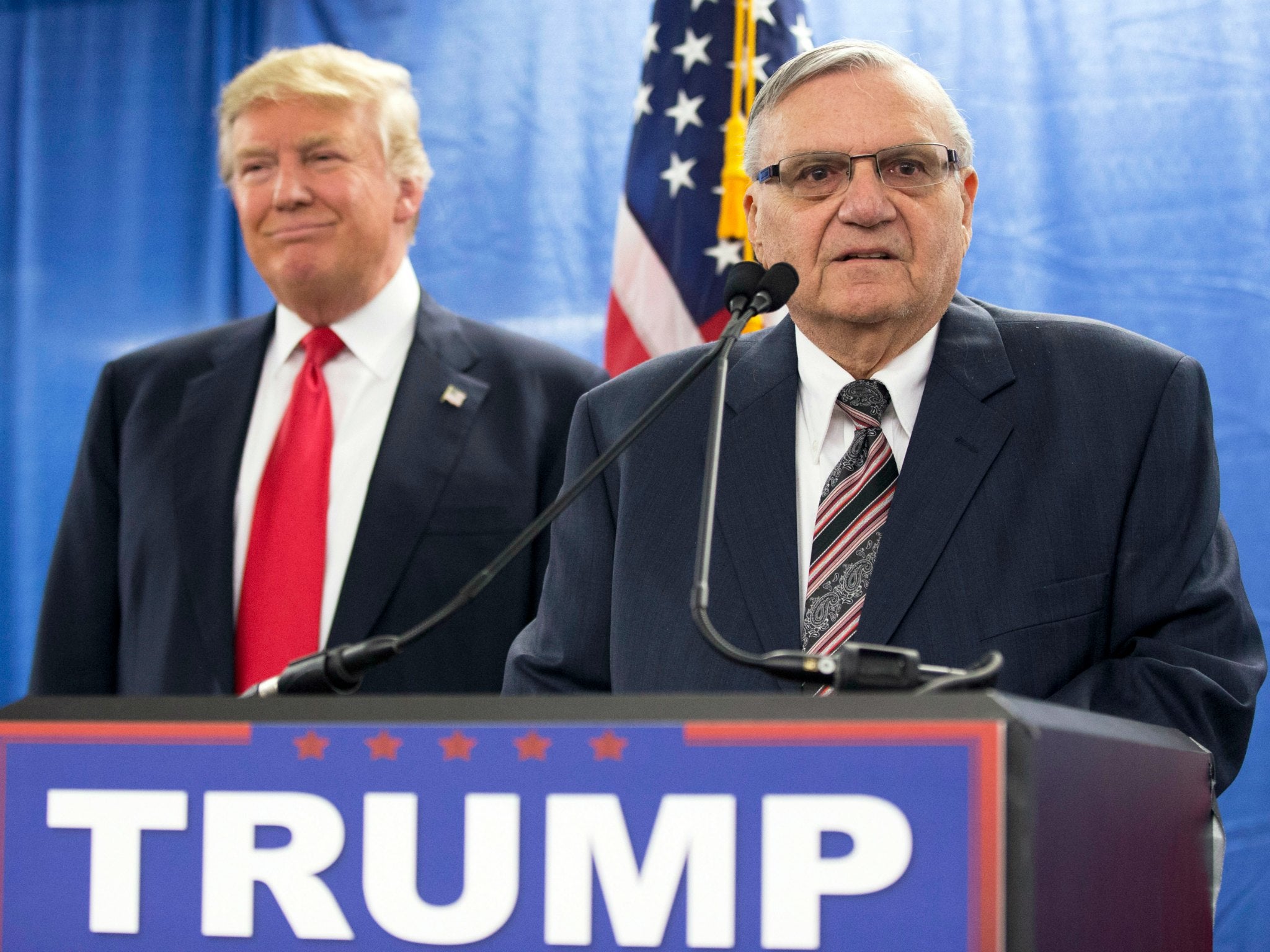Joe Arpaio: Arizona judge refuses to erase ex-sheriff's criminal record despite Donald Trump pardon
Former Maricopa County lawman convicted of carrying out racial profiling and unlawful detention of state's Mexican and Latino population

Your support helps us to tell the story
From reproductive rights to climate change to Big Tech, The Independent is on the ground when the story is developing. Whether it's investigating the financials of Elon Musk's pro-Trump PAC or producing our latest documentary, 'The A Word', which shines a light on the American women fighting for reproductive rights, we know how important it is to parse out the facts from the messaging.
At such a critical moment in US history, we need reporters on the ground. Your donation allows us to keep sending journalists to speak to both sides of the story.
The Independent is trusted by Americans across the entire political spectrum. And unlike many other quality news outlets, we choose not to lock Americans out of our reporting and analysis with paywalls. We believe quality journalism should be available to everyone, paid for by those who can afford it.
Your support makes all the difference.A federal judge has shot down former Sheriff Joe Arpaio's bid to sweep his criminal record clean.
Arpaio, the controversial former lawman in Arizona's Maricopa County, was granted a pardon by President Donald Trump on 25 August. He had been found in criminal contempt after a five-day bench trial earlier this year and faced the possibility of up to six months in jail. After the pardon, Arpaio petitioned the court to clear his record and prevent the ruling from being used in future litigation.
The case raised the novel question of how far a presidential pardon actually reaches.
In her ruling, US District Judge Susan Bolton said the pardon only freed Arpaio from possible punishment. In a four-page order offering a check on the president's executive power, Bolton wrote that a pardon could not erase the facts of the case.
“The power to pardon is an executive prerogative of mercy, not of judicial record-keeping,” Bolton wrote in a four-page decision. “To vacate all rulings in this case would run afoul of this important distinction. The Court found Defendant guilty of criminal contempt.”
The President issued the pardon, and Arpaio was spared “from any punishment that might otherwise have been imposed,” the judge wrote. “It did not, however, 'revise the historical facts' of this case.”
The Washington Post
Join our commenting forum
Join thought-provoking conversations, follow other Independent readers and see their replies
Comments